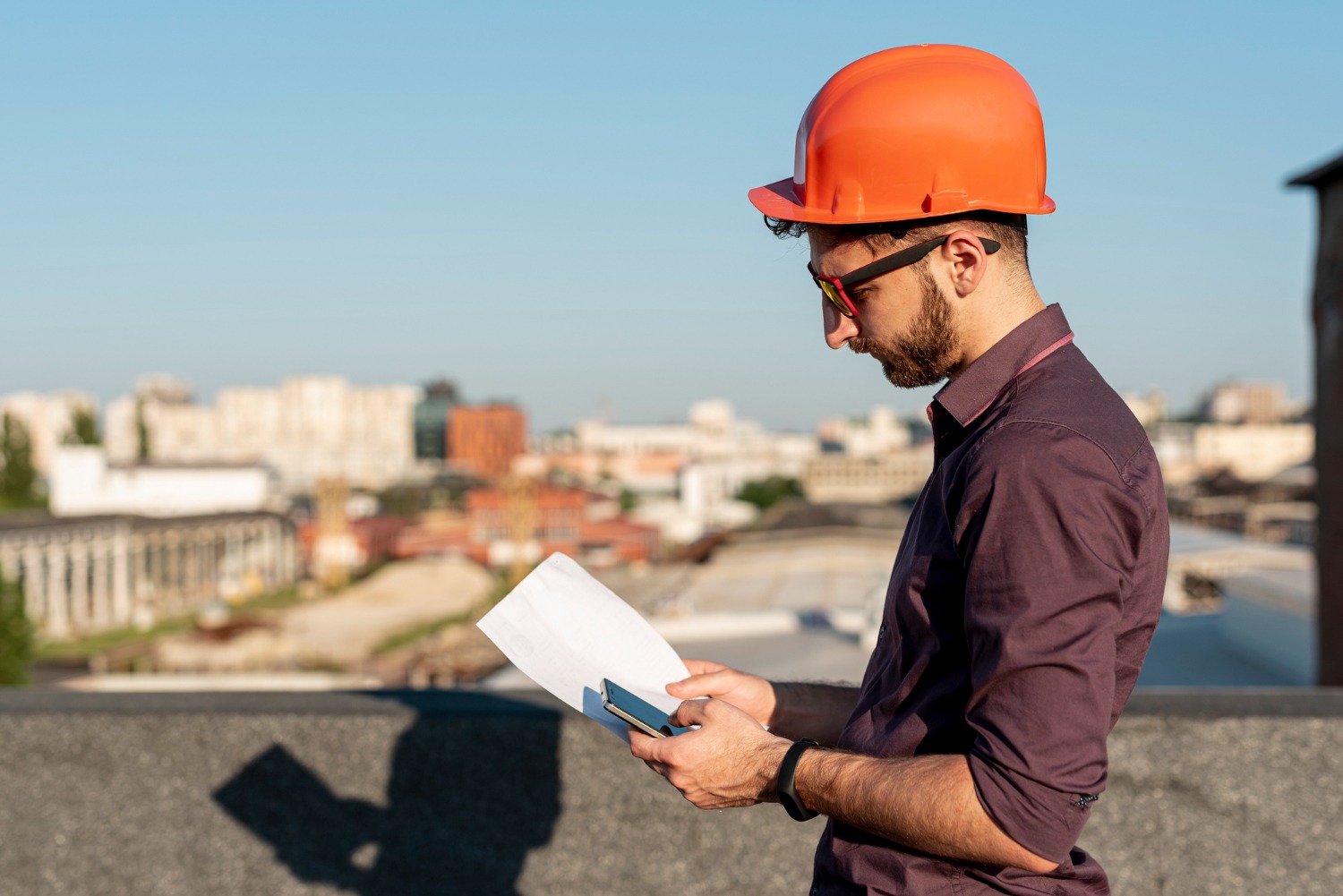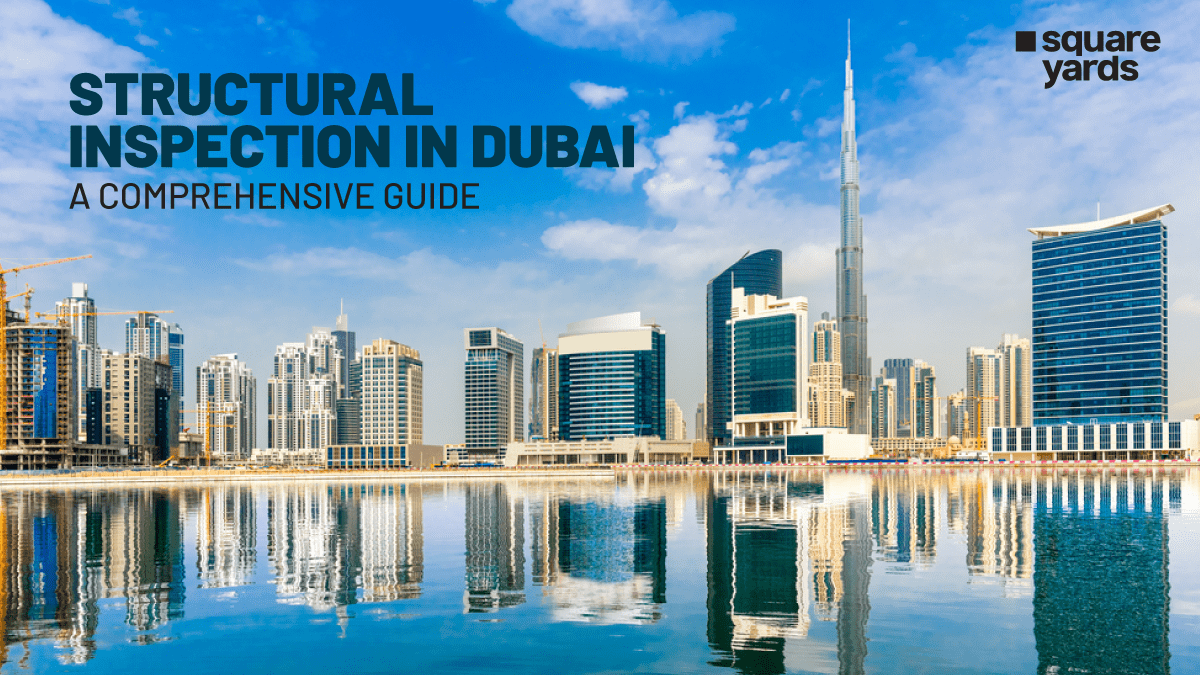Structural inspections are a cornerstone in maintaining buildings’ safety, stability, and longevity. The importance of regular and thorough structural inspections cannot be overstated in a rapidly developing city like Dubai, where the skyline is constantly evolving. These inspections ensure that buildings, whether newly constructed or older, adhere to the strict regulatory standards set by the Dubai Development Authority (DDA). This guide will take you through the essentials of structural inspection in Dubai, from the process of applying to understanding the benefits and costs involved.
What is Structural Inspection in Dubai?
A structural inspection in Dubai involves an in-depth examination of a building’s structural components. These components include foundations, beams, columns, and load-bearing walls, which are integral to the building’s stability. The inspection aims to identify any defects, weaknesses, or potential risks that could compromise the building’s safety. After the inspection, a structural engineer report is generated. This report details any issues, recommendations for repairs or maintenance, and a certification that the building meets all required standards.
In Dubai, structural inspections are important in ensuring buildings are safe for occupants and compliant with local regulations. Given the city’s unique environmental conditions, such as high temperatures, occasional heavy rains, and the presence of corrosive salt in the air near coastal areas, regular structural inspections are important. These inspections help detect early signs of wear and tear or damage that could be exacerbated by the local climate, preventing potentially catastrophic failures.
The DDA has established comprehensive guidelines that outline the requirements for structural inspections in Dubai. These guidelines are designed to ensure that all buildings, regardless of their age or purpose, maintain a high standard of safety and stability. The DDA’s structural guidelines cover various aspects, including the materials used in construction, the design of the building, and the methods employed in its construction. Adhering to these guidelines is mandatory for all property owners and developers in Dubai.
When is a Structural Inspection Necessary?

Structural inspections are required at various stages of a building’s life cycle and under different circumstances. Understanding when these inspections are necessary can help property owners, investors, and developers ensure that their buildings remain safe and compliant with regulatory standards.
-
Pre-Purchase Evaluations
One of the most common scenarios where a structural inspection is necessary is when purchasing a property. Whether a residential or commercial building, a structural inspection provides peace of mind that the building is in good condition and free from major structural defects. This is particularly important in Dubai, where property investments are significant, and any unforeseen issues could lead to costly repairs or reduced property value.
-
Post-Construction Checks
After the construction of a building is completed, a final structural inspection is necessary to ensure that the construction meets all regulatory standards. This inspection is a prerequisite for obtaining a completion certificate from the relevant authorities. It involves a thorough examination of the entire structure, including foundations, beams, and columns, to ensure that they have been built according to the approved plans and specifications.
-
Renovation Projects
Structural inspections are also crucial before renovating or modifying an existing building. These inspections help determine whether the current structure can support the planned changes and identify any potential risks that must be addressed. For example, if you plan to add an extra floor or extend a section of your building, a structural inspection will assess whether the foundations and load-bearing walls can handle the additional load.
-
Routine Maintenance
Even if a building is not undergoing any major changes, regular structural inspections are recommended for routine maintenance. These inspections can help identify early signs of structural issues, such as wall cracks, sagging beams, or foundation settlement. Addressing these issues can prevent more severe problems, ensuring the building remains safe for its occupants.
-
Emergency Situations
In the event of a natural disaster, such as an earthquake or severe storm, a structural inspection may be necessary to assess any damage caused to the building. This inspection will help determine whether the building is safe for occupancy or if immediate repairs are needed to restore its structural integrity.
Benefits of a Structural Inspection in Dubai

Conducting regular structural inspections offers numerous benefits that extend beyond mere regulatory compliance. These benefits include enhanced safety, financial protection, and increased property value.
-
Safety Assurance
The primary benefit of a structural inspection is the assurance of safety. By identifying potential hazards, such as cracks in the foundation, corroded steel beams, or compromised load-bearing walls, structural inspections help prevent accidents and ensure the safety of the building’s occupants. In Dubai, where high-rise buildings and complex structures are common, ensuring the safety of these buildings is paramount.
-
Financial Protection
Structural inspections can save property owners a significant amount of money in the long run. By detecting issues early before they become major problems, property owners can avoid costly repairs or complete structural failures.
-
Compliance with DDA Structural Guidelines
Another key benefit of structural inspections is ensuring compliance with the DDA structural guidelines. Non-compliance with these guidelines can result in fines, legal issues, and difficulties in selling or leasing the property. A certified structural inspection report proves the building meets all regulatory requirements, making navigating legal and administrative processes easier.
-
Enhanced Property Value
A building regularly inspected and certified by a structural engineer is more attractive to potential buyers or tenants. A clean bill of health from a structural inspection report can increase the property’s market value and make it easier to sell or lease. Similarly, a property with known structural issues may have a reduced market value and take longer to sell.
-
Peace of Mind
Having a certified structural inspection certificate provides property owners with peace of mind. Knowing that their building is safe, compliant with regulations, and free from major structural issues allows them to focus on other aspects of property management without worrying about potential problems lurking beneath the surface.
How do you Apply for a Structural Inspection in Dubai?
Applying for a structural inspection in Dubai is simple, but it requires careful attention to detail to ensure that all necessary steps are followed correctly. Below, we outline the key steps, from meeting eligibility requirements to submitting the necessary documents and paying fees.
-
Eligibility Requirements for Requesting an Inspection
The applicant must meet certain eligibility requirements to apply for a structural inspection in Dubai. These requirements ensure that the inspection request is legitimate and that the applicant has the authority to request it.
-
- Property Ownership: The applicant must be the property owner or a legally authorised representative. This ensures the person requesting the inspection is vested in the property’s safety and compliance.
- Property Registration: The property must be registered with the Dubai Land Department (DLD). This registration is a legal requirement for all properties in Dubai and ensures that the relevant authorities recognise the property.
- Compliance with DDA Guidelines: The property must comply with the DDA structural guidelines. This means that the property must have been constructed according to the approved plans and specifications and must adhere to the DDA’s standards for materials, design, and construction methods.
-
Types of Structural Inspections Available
Dubai offers a variety of structural inspections for different needs.
-
- Initial Inspection: This type of inspection is conducted on new buildings or properties being sold for the first time. It ensures the building has been constructed according to the approved plans and meets all regulatory standards.
- Routine Inspection: Routine inspections are conducted regularly for ongoing property maintenance. These inspections help identify any potential structural issues before they become serious problems.
- Special Inspection: Special inspections are conducted when a property undergoes significant changes, such as renovations or expansions. These inspections assess whether the existing structure can support the planned changes and identify any risks that must be addressed.
- Final Inspection: After completing a construction project, a final inspection is conducted to ensure the building meets all regulatory standards. This inspection is necessary to obtain a completion certificate from the relevant authorities.
-
What Are the Documents Required?
When applying for a structural inspection in Dubai, it is essential to have all the necessary documents prepared and submitted with the application. The required documents include:
-
- Proof of Property Ownership: This can be a title deed, sale agreement, or any other document proving the applicant’s property ownership.
- Authorisation Letter: If the applicant is not the property owner, an authorisation letter from the owner must be provided, granting the applicant the authority to request the inspection.
- Architectural and Structural Plans: Copies of the property’s architectural and structural plans must be submitted. These plans provide the inspection team with detailed information about the building’s design and construction.
- Previous Inspection Reports: If the property has undergone previous inspections, copies of the structural inspection reports must be provided. These reports offer insights into the property’s history and any issues that were previously identified and addressed.
- Payment Receipts: Proof of payment for the inspection fees must be included with the application. This ensures that the application is processed without delays.
-
Fees and Payment Methods
The cost of structural inspection in Dubai varies depending on several factors, including the size of the building, the type of inspection, and the complexity of the structure. Generally, larger and more complex buildings require more detailed inspections, which can increase the cost.
-
-
Fee Structure
-
Here is the fee structure for structural inspections.
|
Type of Service |
Fee (AED) |
|
Standard Structural Inspection Request |
No charge |
|
Late/Holiday Inspections Request |
AED 2,000 per request |
|
3rd Inspection Request on the Same Structural Member |
AED 2,000 per request |
|
Pre-inspection for Completion Certificate |
AED 7,500 |
|
4th Request of Completion Certificate Onwards |
AED 10,000 per request |
|
Knowledge Dirham Fee |
AED 10 per transaction |
|
Innovation Dirham Fee |
AED 10 per transaction |
-
-
Payment Methods:
-
Dubai offers multiple payment methods for structural inspections, including:
-
-
- Bank Transfer
- Online Payment Portal
- Direct Payment at DDA Offices
-
-
Estimated Time to Deliver
The time required for various structural inspection services, according to the Dubai Development Authority (DDA), is as follows:
-
-
Standard Structural Inspection Request:
- If the request is received during working days between 12:00 AM and 7:00 AM, the inspection is conducted on the same day.
- If the request is received during working days between 7:00 AM and 12:00 AM, the inspection is conducted the next working day.
- The inspection is conducted on the next working day if the request is received on weekends or public holidays.
-
Late/Holiday Inspections Request:
- These inspections are conducted at an arranged time, typically after 3:00 PM on Monday through Friday and on Sundays and public holidays.
-
Structural Completion Certificate:
- The estimated time to deliver a Structural Completion Certificate is 5 working days from the final inspection date.
-
Terms and Conditions to Apply for Structural Inspection in Dubai
When applying for a structural inspection in Dubai, it is important to comply with the terms and conditions set by the DDA. These terms and conditions ensure the inspection process is smooth, transparent, and fair for all parties involved.
- Adherence to DDA Guidelines: The applicant must ensure the property adheres to the DDA structural guidelines. Non-compliance can result in the rejection of the inspection request or additional fines.
- Accurate Documentation: All documents submitted with the inspection application must be accurate and complete. Any discrepancies or missing documents can lead to delays or application rejection.
- Property Accessibility: The property must be accessible to the inspection team at the scheduled time. This includes providing access to all areas of the building that need to be inspected, such as basements, rooftops, and mechanical rooms.
- Non-Refundable Fees: The structural inspection cost is non-refundable once the inspection process has begun. This policy applies even if the applicant cancels or postpones the inspection.
- Compliance with Inspection Findings: If the inspection report identifies any issues, the property owner must address them within the timeframe specified by the DDA. Failure to comply with the inspection findings can result in fines or legal action.
Conclusion
In Dubai, structural inspections are essential for maintaining the safety, stability, and value of buildings. Whether you are a property owner, investor, or developer, understanding the importance of structural inspections and complying with the DDA structural guidelines is important. By conducting regular inspections, you can ensure that your building remains safe, compliant, and ready to withstand the test of time.
Similar Suggestions For You:
|
Guide to Shared or Fractional Ownership in Dubai |
|
|
Know About Dubai Service Charges |
|
|
Property Transactions with DLD Madmoun Service |
|
|
Everything About Tenancy Renewal Agreement |
|
|
Apply For Housing Construction Grant In Dubai |
|
|
How to Apply For Housing Land in Dubai |
|
|
Explore Gifted Property in Dubai |
Frequently Asked Questions (FAQ’s)
The frequency of structural inspections in Dubai can vary depending on the age, type, and condition of the property. Inspections are required at various stages of new construction. For existing buildings, routine structural inspections are recommended every few years to ensure ongoing compliance with safety standards and address potential structural issues early. Regular inspections might be more frequent for older buildings or those exposed to harsh environmental conditions.
The cost of a structural inspection in Dubai can vary depending on the type and size of the property. Standard inspections conducted during regular working hours are free. Fees are charged for late or holiday inspections repeat inspections and special inspections. For example, a late inspection might cost AED 2,000, and additional fees like the Knowledge Dirham and Innovation Dirham
After applying for a structural inspection in Dubai, the time it typically takes to conduct the inspection depends on the timing of the request. If the application is submitted between 12:00 AM and 7:00 AM on a working day, the inspection is generally conducted on the same day. However, the inspection will be scheduled for the next working day if the request is made between 7:00 AM and 12:00 AM. The inspection is carried out on the next working day for requests made during weekends or public holidays.
The property owner is responsible for the cost of any repairs identified during a structural inspection in Dubai. Depending on the contract terms, if the building is under warranty or part of a construction project, the contractor or developer might bear some of the costs. Reviewing the specific contractual agreements and warranties related to the property is important.
Warning signs that might indicate the need for a structural inspection in Dubai include: Visible cracks in walls, floors, or ceilings. Uneven floors or sagging beams. Doors or windows that no longer close properly. Water damage or signs of mould. Unexplained noises in the structure, especially during windy conditions. Any noticeable movement or settling of the building’s foundation.
Structural inspections are mandatory at various stages of construction for all new buildings in Dubai to ensure compliance with the Dubai Development Authority (DDA) guidelines. While not all existing buildings are required to undergo regular inspections, it is strongly recommended, especially for older buildings or those that have undergone significant renovations. Specific circumstances, like property transactions or visible structural damage, may also necessitate mandatory inspections.
Queries related to Dubai Municipality can be answered for free through the official Dubai Municipality website, customer service centres, or by calling their dedicated helpline. The Dubai Municipality also has online portals where residents and businesses can submit their inquiries and receive assistance. Phone Number: +971 4 2215555 Website: https://www.dm.gov.ae/
A structural inspection application is typically required at the final stages of construction when applying for a Final Inspection Certificate (FIC). This inspection ensures the completed structural elements comply with the approved plans and safety standards. The application must be submitted to the relevant authorities, such as the Dubai Development Authority (DDA), before the final casting or completion of key structural components. How often should I get a structural inspection done on my property in Dubai?
How much does a structural inspection cost in Dubai?
How long does it take to get a structural inspection done in Dubai after applying?
Who is responsible for the cost of repairs identified during a structural inspection in Dubai?
What warning signs might indicate a need for a structural inspection in Dubai?
Is a structural inspection mandatory for all buildings in Dubai?
Where can I get my queries related to Dubai Municipality answered for free?
At what stage does the project require a structural inspection application for FIC?




